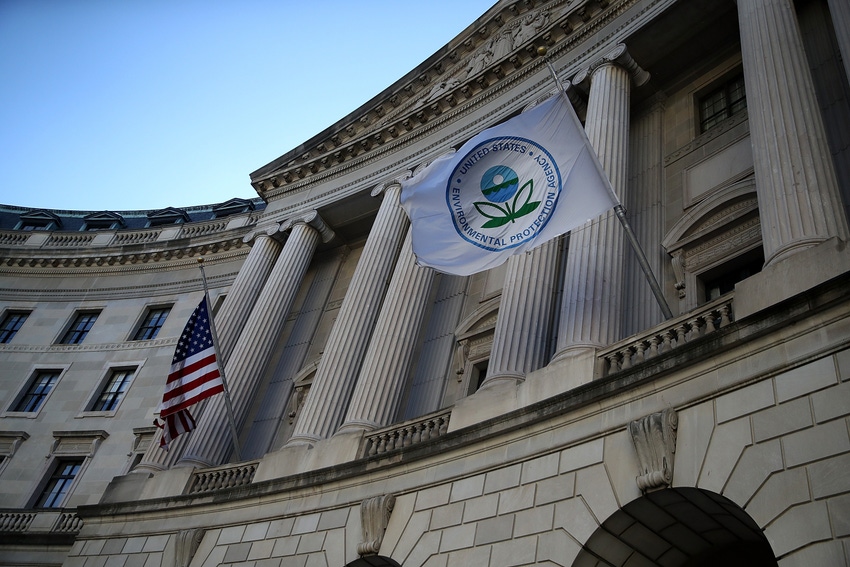
Despite the Trump administration’s previous view of the 10th Circuit’s interpretation of small refinery exemption (SRE) eligibility under the Renewable Fuel Standard, the current U.S. Environmental Protection Agency did not file a brief supporting that position by the Supreme Court’s deadline in HollyFrontier. After careful consideration, EPA says it agrees with the U.S. Court of Appeals for the 10th Circuit’s reading of the RFS small refinery exemption provision.
In a statement posted on its Website Feb. 22, EPA says it supports the Tenth Circuit Court ruling issued in January 2020 where the court vacated and remanded three EPA decisions granting SRE petitions for the 2016 and 2017 RFS compliance years which were issued in calendar years 2017 and 2018, holding that a small refinery’s petition can be granted only if the refinery satisfies two conditions: demonstrates an existing exemption or demonstrate disproportionate economic hardship caused by RFS compliance.
“This conclusion, prompted by a detailed review following the Supreme Court’s grant of certiorari in the case, represents a change from EPA’s position before the Tenth Circuit,” EPA says. “The change reflects the Agency’s considered assessment that the Tenth Circuit’s reasoning better reflects the statutory text and structure, as well as Congress’s intent in establishing the RFS program.”
In enacting the RFS program, Congress recognized the need to allow small refineries (those with aggregate crude oil throughput less than or equal to 75,000 barrels per day) to transition into the program. Small refineries were exempted from the RFS program in its earliest years, 2006-2010, after which a small refinery could petition EPA for and receive an extension of its exemption if it could demonstrate the refinery would suffer “disproportionate economic hardship” as a result of complying with its RFS obligations, EPA explains.
In calendar year 2017 (largely for the 2016 RFS compliance year), EPA began granting a large number of petitions for extensions of SREs. By 2018, the number of SREs issued for the 2017 compliance year was more than quadruple the number issued for the 2015 compliance year.
For example, for the 2015 compliance year, only 290 million renewable identification numbers (RINs) were not retired due to SRE petitions granted, yet for the 2017 compliance year, that number grew to 1.82 billion non-retired RINs.
“The large increase in SRE petitions granted and associated unretired RINs represents a significant decline in the required use of renewable fuel volumes, which in turn decreased the incentives for the production and use of renewable fuels,” EPA explains.
Specifically, the Tenth Court notes that in order to issue an SRE, the agency must demonstrate an existing exemption. Emphasizing the dictionary definitions of the word “extension” as “an increase,” the court held that EPA could not extend or increase a small refinery’s exemption unless the exemption was “in existence.”
In the court’s view, “a small refinery which did not seek or receive an extension in prior years is ineligible for an extension, because at that point there is nothing to prolong, enlarge, or add to.” The court also described CAA section 211(o)(9)(b)(i) as “funnel[ing] small refineries towards compliance over time.”
The court also found that refiners must demonstrate disproportionate economic hardship caused by RFS compliance. The court held that any alleged hardship justifying the grant of an SRE petition must be “caused by” RFS compliance. The court also held that EPA had acted arbitrarily and capriciously by deviating, without acknowledgment or a stated reason, from its prior position that refineries generally do not incur disproportionate economic hardship from purchasing RINs on the open market because the refineries “pass through most or all of their RIN purchase costs” to their customers.
On January 8, 2021, the U.S. Supreme Court granted the small refineries’ petition for a writ of certiorari asking the Court to review the Tenth Circuit’s holding regarding the SRE eligibility of small refineries that lack an existing exemption. HollyFrontier Cheyenne Refining, LLC, et al. v. Renewable Fuels Assn., et al., United States Supreme Court, Case No. 20-472.
“EPA agrees with the court that the exemption was intended to operate as a temporary measure and, consistent with that Congressional purpose, the plain meaning of the word “extension” refers to continuing the status of an exemption that is already in existence,” EPA says.
Biofuel groups welcomed the action by the new EPA. “We are pleased to see the Biden EPA signal support for the 10th Circuit’s ruling and repudiate the prior administration EPA’s misguided attempt to distort the plain language of the RFS to serve oil industry interests at the expense of America’s biofuel producers and farmers,” says Growth Energy CEO Emily Skor.
Renewable Fuels Association President and CEO Geoff Cooper says RFA appreciates the new leadership at EPA for taking the time to thoroughly review and assess the Tenth Circuit Court’s decision.
“This announcement marks a giant step forward by the new administration to restore the integrity of the Renewable Fuel Standard and honor the statutory intent of the program,” Cooper says. “We strongly agree with EPA’s conclusion that the small refinery exemption was intended to be a temporary measure, and we are pleased to see the agency confirming that only previously existing exemptions may be extended.”
Kurt Kovarik, National Biodiesel Board vice president for federal affairs, adds, "We appreciate EPA’s effort to restore integrity to the RFS and set consistent criteria for decisions on exemptions. The 10th Circuit Court set a reasonable standard that EPA’s authority is limited to extending existing exemptions. We applaud EPA’s agreement with that interpretation."
Read more about:
Renewable Fuel StandardAbout the Author(s)
You May Also Like






